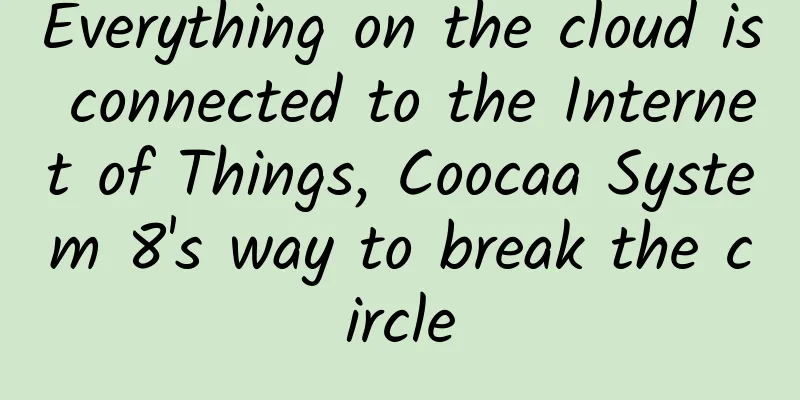Can Android replicate the glory of Windows?

|
In 2014, the mobile smart terminal market was full of twists and turns, and the competition was fierce. Giants and manufacturers have long shifted their focus from first-tier markets to emerging markets such as India and Brazil. Now, with the reality that mobile terminal product hardware is becoming more and more homogeneous, the quality of the operating system has become the key to success or failure for all parties. So which mobile system is the best? Since Android surpassed Symbian in market share and became the world's number one in 2011, it has been leading the mobile market. According to the latest data from Strategy Analytics in 2014, Android accounts for 83.6% of the global mobile smart terminal market share, far higher than iOS's 12.3% and WP's 3.3%. Android's huge share of mobile terminals can easily give people a sense of déjà vu of Windows on PCs. Windows operating system once accounted for 98% of PCs in history, and it still occupies 91.48% of desktop terminals, which means that none of its competitors has a share exceeding single digits. Will the equally powerful Android system be the next Windows? Can Android reproduce the glory of Windows on mobile terminals? When an operating system is born, its fate is closely related to its own software and hardware ecosystem. The reason why we often discuss product ecology is that the operating system, as a hub connecting application software and hardware, cannot exist as an independent entity. Users are concerned about which software they can use on the operating system, while the underlying developers consider the system's ability to call the hardware. We know that there are historical reasons for the monopoly of Windows in the PC desktop field. In the 1980s, when the personal computer market was still wild, IBM PC successfully pioneered the field with its open hardware standards and compatibility. The father of PC, Estridge, chose to cooperate with Microsoft at the beginning, which gave Windows an important opportunity to enter the personal computer field later. Intel and Compaq, which were personally supported by IBM, became Microsoft's main allies later. Here we can see that the partners Microsoft chose and the timing of entering the market were very critical. Relying on IBM's influence and the distribution channels of other manufacturers, coupled with the increasing maturity and richness of application software on the system, Windows was able to occupy the user's desktop faster than the Apple system installed on the Macintosh. On the other hand, Microsoft continued to build a product ecosystem with Windows at its core in the following years, reconstructing the power distribution of the entire industry chain of personal computer products. From the initial IBM, Microsoft, and Intel alliance to the Microsoft, Intel, and Compaq alliance, and finally to the Wintel camp, Windows has become increasingly important in the entire product ecosystem, which is another reason why it can monopolize the PC market. From the above, we can see that the historical reasons for Windows's monopoly include factors of first opportunity, partner factors and product openness, most of which are not Microsoft's foresight but coincidence. So does Android have these conditions? First, Android entered the market in October 2008. At that time, the Symbian system still occupied the largest share of the mobile intelligent terminal market. Although the iPhone had been released for a year, its high-end positioning and Apple's strategic intention based on the niche market meant that the iPhone did not swallow up the Symbian mobile phone market in a short period of time, and Microsoft had not yet launched the WP system. In other words, Android entered the market at the eve of a major change in mobile intelligent products and a period of chaos among terminal manufacturers (Nokia, Samsung, Motorola, etc.). This timing was not the best compared to the time when Windows entered the personal computer market, but it was still good. It followed closely after the launch of the iPhone, which shows that Schmidt's actions were very fast. Imagine if Android was released two years later with WP, the subsequent situation might be completely different. You know how Microsoft dealt with Netscape back then. Then there are the partners. The launch of Android can be traced back to the establishment of the Open Handheld Alliance, whose members include telecom operators, semiconductor companies, mobile phone manufacturers and software developers. We don't know whether Google deliberately borrowed the open compatibility of IBM PC when promoting the Android mobile phone product. Judging from the composition of the Open Handheld Alliance, it is indeed more grand than the PC camp alliance of the year. Moreover, the partners of mobile phone manufacturers alone include Samsung, Motorola and LG, whose terminal market share was second only to Nokia at the time. This posture indicates that they want to grab the fat piece of Symbian market. However, the alliance relationship of the Android camp seems to be far less solid than Wintel of the year. The parties with different interests in the alliance have their own ulterior motives, especially manufacturers use the open Android system to deeply customize, in order to seek to "de-Google" to pursue the greatest interests. So in comparison, the Android system has not become the core of the entire product ecosystem, and Google's control over manufacturers is far inferior to Microsoft of the year. Finally, let's look at the openness of the system. Android is an open source operating system released under the Apache license, and the debate over the pros and cons of open source and closed source systems has always been a controversial topic in the industry. According to traditional sayings and the view of the open source bible "The Cathedral and the Bazaar", open source software can gather the wisdom and strength of more developers to participate in it, which is of great help to software optimization and quality improvement. This is completely reasonable, but it has been proven that open source software does not have an absolute advantage over closed source software. iOS and Android almost have the same starting point in terms of market entry, but who can guarantee that the two have not learned from each other and obtained some of each other's functions through reverse engineering? From the author's observations over the years, open source software is like a long stream. After a long period of evolution, good software can be produced, such as the excellent Linux distribution; closed source software relies on organizational capabilities and developer talent. As long as there is money to throw, good software can still be produced, such as IE in the past. Moreover, sometimes the power of capital is far greater than sentiment, and there must be courageous men under a big reward. In addition, the Android system is not superior in terms of openness, and its competitors can still choose various open channels to build their own product ecosystems. It goes without saying that Microsoft copied the open standards of the PC era, and Apple's App Store pioneered the third-party application business model. In the end, the three are similar in terms of open competition, and it will be a long way to gain product advantages through differentiated competition. In summary, we believe that Android does not have the conditions that Windows had to form a monopoly, but it still has a big advantage (compared to iOS and WP), which is the main reason why it can occupy 83.6% of the market share, which can be attributed to the following points: 1. The iPhone entered the market slightly earlier than Android phones. Its initial strategy of positioning itself in the high-end and niche markets gave Android the opportunity to catch up. However, when Apple discovered that the vast world opened up by the iPhone was far larger than the niche scope, Android had already occupied most of the mid- and low-end markets. 2. Schmidt closely followed Apple's strategy and ensured that Android products did not lag behind iPhone. We can see this from the fact that the release time of App Store and Google Play was only one month apart. 3. Choosing the right partners and relying on huge distribution channels. This method is exactly the same as Wintel's reliance on manufacturers for rapid distribution. The combination of Android and Samsung largely played a role in the end of the Nokia era, and Symbian's market share was handed over. 4. The rise of Chinese manufacturers ensures the rotation of Android market share. In the future, the upstream of mobile intelligence will maintain the coexistence of iOS, Android and WP for a long time. Although Android has not reproduced the glory of Windows in the PC side, it has created another impressive achievement different from Windows. With the emergence of smart home, smart wearable and more device embedded markets, its future performance is even more promising. As a winner of Toutiao's Qingyun Plan and Baijiahao's Bai+ Plan, the 2019 Baidu Digital Author of the Year, the Baijiahao's Most Popular Author in the Technology Field, the 2019 Sogou Technology and Culture Author, and the 2021 Baijiahao Quarterly Influential Creator, he has won many awards, including the 2013 Sohu Best Industry Media Person, the 2015 China New Media Entrepreneurship Competition Beijing Third Place, the 2015 Guangmang Experience Award, the 2015 China New Media Entrepreneurship Competition Finals Third Place, and the 2018 Baidu Dynamic Annual Powerful Celebrity. |
<<: Yu Yongfu: Why did AutoNavi seek cooperation with Guo Degang?
>>: Equity crowdfunding is going to die? Anyone who believes it is a fool
Recommend
How to avoid the “illusion of traffic” and design a successful marketing campaign?
We know that any economic operation or business m...
Key points for Google English SEO optimization
Before studying this tutorial, you must first und...
How much does it cost to customize the Shihezi points mini program? What is the price quote for customizing Shihezi points app?
The factors affecting the quotation of Shihezi po...
Practical tips: How to promote an event well?
First, let me give you a few tips: Tip 1: How to ...
BMW's stake in BMW Brilliance increased to 75%, share adjustment to be completed in 2022
On October 11, the BMW Group announced that it wo...
"Health from eating" series | Why do we often say "eat radish in winter and ginger in summer"? Uncover the mystery of Chinese medicine diet therapy
"Eat radish in winter and ginger in summer&q...
k12 advertising creative optimization guide!
This issue provides you with ideas for optimizing...
How much does it cost to develop a fresh fruit and vegetable delivery app in Huai'an?
WeChat Mini Program is an application that users ...
Wedding photography advertising promotion case!
After the epidemic, the May Day holiday is approa...
The answers to the Super Code Challenge have been revealed! Which questions are you stuck on?
In this Super Code Challenge, we have set up four...
Event Operations丨Which is more painful, no one participating or dying after having a great time?
Two friends told me about some of their confusion...
These items on the table may be the accomplices that make us fat and accelerate the incidence of cardiovascular diseases!
Did you know that the disease that causes the mos...
The Essence of Gravitation
The concept of gravity Gravity is the interaction...
Juniper Research: Global 5G revenue is expected to exceed US$65 billion in 2025
According to foreign media reports, market resear...






![[Case] 17 pictures to understand the functional development and analysis of Meituan.com’s campus channel structure!](/upload/images/67cc40aa713ca.webp)


